SUMMARY
This is AI generated summarization, which may have errors. For context, always refer to the full article.

Editor’s Note: Political dynasties currently occupy 29% of local posts, up from only 19% in 1988. They hold 80% of the country’s gubernatorial posts, compared to only 57% in 2004. In Congress, they now control about 67% of seats from 48% in 2004.
This means that most of our provinces are governed by leaders who come from families or clans that have dominated local politics for years, and the country’s laws, which citizens are subjected to, are mostly crafted by them.
In this series on political dynasties in 2022, Rappler takes a close look at the persons and families who wield tremendous power and continue to have a firm grip on their respective localities. Their brand of politics and exercise of their political clout influence not only the outcome of local elections but also the choice of our national leaders.
CAVITE, Philippines – The Revilla clan headed by Senator Bong Revilla is now officially the biggest dynasty in Cavite, with six family members elected to local positions while two others await if the party lists that nominated them would be getting seats in Congress.
Closely following the Revillas in expanding their power base is the Tolentino family, headed by another senator, Francis Tolentino. Five family members have been elected locally.
Meanwhile, one of the most influential political families in the province, the family of reelected Governor Juanito Victor “Jonvic” Remulla, only had three immediate members who ran and got elected, although a relative who shares the surname clinched a seat in a city council.
Cavite is the second most vote-rich province in the Philippines, with 2,302,353 voters registered for 2022.
In the presidential and vice presidential races, Cavite delivered a landslide victory for Ferdinand Marcos Jr. and Sara Duterte, respectively. The tandem, children of Philippine presidents, were endorsed by these three political families: the Remullas, Revillas, and Tolentinos. The tandem won in all 23 towns and cities.
Revillas in different cities, districts

Senator Revilla’s wife, Lani Mercado-Revilla, is back as congresswoman of the 2nd District (Bacoor) after serving as the city’s mayor.
The couple’s son Jolo, finishing his term as provincial vice governor, will join his mother in the House of Representatives as congressman of the 1st District (Kawit, Noveleta, Rosario, Cavite City).
Another son, Ram Revilla, has been elected provincial board member, representing the 2nd District.
Bacoor, which comprises Cavite’s 2nd District, is now completely under the family. Senator Revilla’s brother Strike is returning as mayor, exchanging his congressional seat with sister-in-law Lani.
Strike’s vice mayor is his older sister, Rowena Bautista-Mendiola, who is wrapping up her third term as city councilor. Rowena started her political career as a councilor in the neighboring city (then still a municipality) of Imus, where their late father, former senator Ramon Revilla, traced his roots.
In Imus, the older Revillas’ nephew, Igi Revilla-Ocampo, clinched the last slot in the 12-person city council. He is the son of their sister Princess, a former actress.
Bacoor became the second congressional district after it was carved out of the 1st District in 2010. But just when the Abayas thought the Revillas would leave them alone in what remained of the original district, Jolo ran for congressman in 2022.
Because the Abayas had controlled the 1st District for 27 years – beginning with their father, Plaridel – the congressional race here became the Revillas’ only difficult election in 2022. While the family members who ran in Bacoor got 82.69% (Rowena) to almost 89% (Strike) of the votes in their respective races, Jolo barely made it with 52.32% of the votes in the 1st District in a one-on-one against Paul Abaya, brother of outgoing Representative Francis Gerald Abaya.
Revillas in the party list
In the national polls, two more Revilla family members are nominees of different party-list organizations.
Based on the nominations submitted to the Commission on Elections (Comelec) when their groups applied for accreditation, Marlon Bautista, Senator Bong Revilla’s older brother, is the third nominee of 1-Pacman, while the senator’s oldest son Bryan is the fifth nominee of Agimat ng Masa.
There are recent reports, however, that Bryan is now the first nominee of Agimat, placing him closer to a congressional seat, should the organization get the required minimum 2% of the votes. We will update this report once the Comelec confirms any changes in the party list.
Revillas outside of Cavite
The newly-elected vice mayor of Pasig City, Dodot Jaworski, a former congressman and son of a former senator, is a nephew of the Revillas. His mother is the older half-sister of Senator Bong.
Meanwhile, the Revillas’ youngest sister, Andrea, is completing her single term as mayor of Antipolo, Rizal, to give way to her husband Jun Ynares, who is returning to the post. Before Jun’s first stint as mayor in 2013, he had served as Rizal governor for two terms.
Tolentinos in Tagaytay, and the province

Senator Francis Tolentino may be the more nationally prominent of the two sons of the late Isaac Tolentino, former longtime mayor of Tagaytay City, but it is his brother Abraham or Bambol who is expanding the local dynasty.
Bambol, currently the congressman of the 8th District (Tagaytay, Alfonso, General Emilio Aguinaldo, Magallanes, Maragondon, Mendez, Naic, Ternate), is returning as city mayor – a post he had occupied after Francis’ three consecutive terms. Sliding down to vice mayor is current Mayor Agnes Tolentino, Bambol’s wife.

The couple’s daughter Athena, a city councilor, has been elected vice governor, as running mate of Governor Remulla. The other daughter, Aniela, won as congresswoman of the 8th District, and will succeed her father.
Senator Francis’ son, Micko Tolentino, topped the council election in Tagaytay in his reelection bid. Before this, in 2019, he placed No. 2 as the top spot went to cousin Athena. Micko used the nickname “Batang Tol” for his campaign, apparently taking after the senator’s 2019 campaign nickname “Tol” – short for both “Tolentino” and “utol” (slang for brother).
Remullas’ self-imposed limit

Following a resolve from several elections ago to field only up to three family members at a time, the political heirs of the late former governor Juanito “Johnny” Remulla did just that again in 2022. All three of them won, with bigger margins than before.
Jonvic is reelected governor with almost 85% of the votes in a four-way contest. His older brother, Senior Deputy Majority Leader Jesus Crispin “Boying” Remulla, is reelected unopposed as congressman of the 7th District (Trece Martires, Amadeo, Indang, Tanza), while Boying’s son Ping is the No. 1 provincial board member from the district.
Darwin Remulla, who introduced himself in pamphlets as “pinsan ni Governor Jonvic Remulla,” placed sixth in the council election in Imus, hometown of the Remulla patriarch Juanito.

Now comes the hard part: governance
Of Cavite’s 23 cities and municipalities, there are only seven where none of the elected mayors, vice mayors, and councilors are immediately related to each other or to winning candidates for provincial board members, congressional representatives, or mayors of other towns.
These are General Mariano Alvarez, Silang, Indang, Alfonso, General Emilio Aguinaldo, Maragondon, and Ternate.
One in around three cities and municipalities in Cavite will be ruled by a political dynasty in the next three years, as the most populous province in the country continues to keep up with rapid in-migration.
Considered as Metro Manila’s kitchen or bedroom, being immediately south of the National Capital Region, Cavite has a population of 4,344,829 as of 2020 – an increase of 666,528 from the census just five years before that. In effect, according to data from the provincial government, every year, for every 1,000 persons already residing in Cavite, 36 more move in.
The province’s popularity as a resettlement destination is obvious. It is urbanized enough to offer the conveniences of Metro Manila at a lower cost of living. With 55 economic zones and industrial estates either already operating or in the process of setting up, Cavite is a hub for big investors, jobseekers, as well as entrepreneurs seizing the opportunities opened up by the economic boom. On the trade and industry department’s competitive index, Cavite ranks 5th in terms of revenues – P29.4 billion, as of 2021.
Yet it remains unspoiled in many parts, where agricultural lands and environmentally protected areas are safeguarded by physical framework and development plans started by the late longtime governor Remulla (father of the incumbent) and carried on by succeeding provincial leaders.
However, Cavite, a first class province in terms of income, has a small land area compared to many of the rich provinces. With a land area of 1,426.06 square kilometers, it is the 15th smallest out of the 81 provinces. With a population growth rate of more than 3% every five-year interval, and with areas protected from commercial and residential development, Cavite continuously faces the challenge of keeping its development sustainable.
All these factors combined beg the question of whether voters realized how big the stakes were when they chose their leaders in the recently concluded elections.
Scions of political families or not, do these elected officials understand policy planning and resource management? How prone are these officials to compromises when developers and investors ask for land conversions that would hurt agriculture, and developments that could harm the environment?
In 2022 too, these officials will be in charge of much bigger allocations from the national tax collection, as Cavite and its towns and cities, like the rest of the local government units across the country, benefit from a Supreme Court ruling.
Cavite voters handed their local officials easy victories in 2022 – most, if not all, of them had unopposed bids or token challengers. Can they, in turn, demand that governance not be done like business-as-usual? – Rappler.com
Read the other stories in our Political Dynasties 2022 series:
Luzon
- Political Dynasties 2022: Amid controversies, Pinedas of Pampanga expand reach
- Political dynasties 2022: Espinos still lynchpin of Pangasinan politics
- Political Dynasties 2022: Pangasinan clans in high stakes 2022 brawl
- Political Dynasties 2022: Fariñas clan foil to Marcos power in Ilocos Norte
Visayas
- Political Dynasties 2022: Evardones reach Eastern Samar summit
- Political families crowd Eastern Samar candidates’ list
- Political Dynasties 2022: No heirs for Osmeña, Rama in Cebu City
- Political Dynasties 2022: Garin patriarch of Iloilo hard act to follow
- Political Dynasties 2022: Benitez clan guns for Bacolod City
- Negros Occidental big clans offer ‘soft’ support for Marcos
Mindanao
- Political Dynasties 2022: Zubiris rule Bukidnon after Fortich
- Political Dynasties 2022: Clashing families spring from Dongkoy Emano
- Political Dynasties 2022: Dongkoy Emano morphs into kingpin after EDSA revolt
- Political Dynasties 2022: Two families dominate Zamboanga Sibugay politics
Related content:
Add a comment
How does this make you feel?



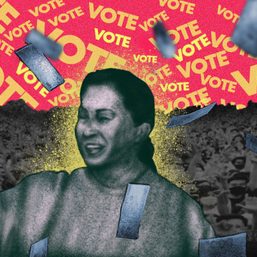

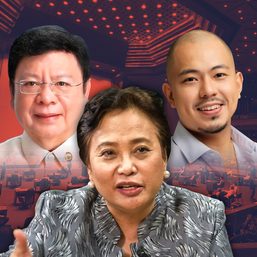
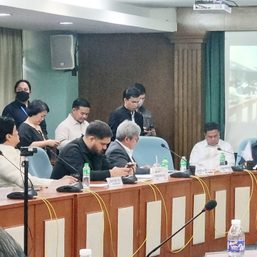
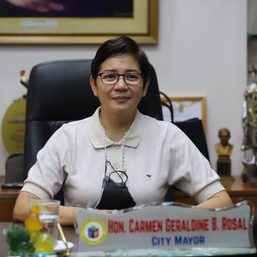















![[Hindi ito Marites] First Lady Liza Marcos: Unofficial presidential spokesperson?](https://www.rappler.com/tachyon/2024/05/Hindi-ito-Marites-TC-ls-02.jpg?resize=257%2C257&crop_strategy=attention)
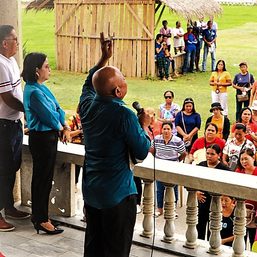

There are no comments yet. Add your comment to start the conversation.